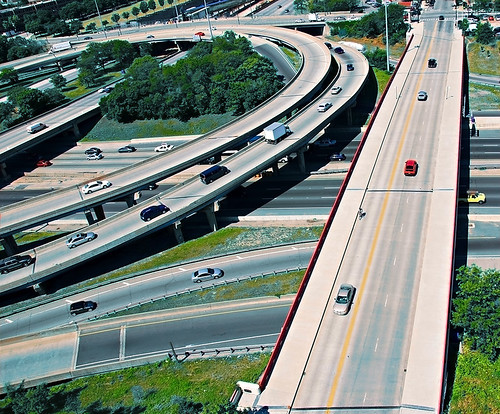It isn't just auto industry executives who think every change is going to have dire consequences for their company's bottom line. For instance, energy companies resist making their plants more efficient and less polluting because they are afraid it will 'cost too much', without any real evidence that this is the truth.
James Surowiecki writes:
Fuel for Thought:
In the auto industry, there’s one thing you can always count on: if a new environmental or safety rule is proposed, executives will prophesy disaster. In the nineteen-twenties, Alfred Sloan, the president of General Motors, insisted that the company could not make windshields with safety glass because doing so would harm the bottom line. In the fifties, auto executives told Congress that making seat belts compulsory would slash industry profits. When air bags came along, Lee Iacocca told Richard Nixon that “safety has really killed all our business.” A few years later, when Congress was thinking about requiring fuel-economy standards, auto executives warned that instituting such standards would create “massive financial and unemployment problems.” And now, with Congress debating a bill to raise fuel-economy standards, for the first time in almost twenty years, the Chicken Littles are squawking again, forecasting doom for Detroit and asserting that making higher-mileage vehicles is technologically unfeasible and economically suicidal.
Mr. Surowiecki goes on to argue we should raise fuel economy standards to “save ourselves from ourselves”.
Americans may want to buy the biggest and most environmentally damaging vehicles available, but polls show that, given an option, some three-quarters of them vote for dramatic increases in fuel-economy standards—increases that may well force automakers to sell fewer (or at least smaller) S.U.V.s. We buy gas guzzlers but vote for gas sipping. This isn’t because people are ignorant about how higher fuel-economy standards would affect them personally; polls that explicitly lay out the potential trade-offs involved still find support for tougher standards. And it isn’t as if voters and car buyers belong to two different groups; one recent survey of pickup owners found that seventy per cent strongly favored tougher requirements. The curious fact is that many people buying three-ton Suburbans for that arduous two-mile trip to the supermarket also want Congress to pass laws making it harder to buy Suburbans at all. ... People believe that bigger and heavier cars are safer in a crash (forgetting that, often, bigger cars are also more likely to crash). And people like the fact that driving a higher-horsepower car makes you look better at the stoplight. So our desires as individuals to protect ourselves and to outclass our neighbors encourage us to buy bigger and bigger vehicles with more and more horsepower. And the market doesn’t create counter-incentives that would push us in a responsible direction, since someone who drives a Hummer doesn’t suffer the effects of pollution and global warming any more than someone driving a Prius does, and isn’t charged more for the extra environmental damage.
Technorati Tags: automotive, Detroit, economy, energy, environment

